Profile
Jonathan Jackson
And that's all, folks! Hope you enjoyed I'm a Scientist USA! Stay in touch with me on Twitter - @egaly!
Work History
-
Education:
Rice University (2003-2007), Washington University in St. Louis (2007-2014)
-
Qualifications:
B.A. in Cognitive Science (Neuroscience concentration), M.A. in Psychology, Ph.D. in Psychological and Brain Sciences
-
Work History:
Postdoctoral Fellow in Neuroscience, Brandeis University, 2013-2015; Research Fellow/Instructor in Neurology, Massachusetts General Hospital & Harvard Medical School, 2015-Present
-
Current Job:
I’m a researcher in the early detection of Alzheimer’s disease.
-
Employer:
Harvard Medical School & Massachusetts General Hospital
-
My Work:
I study the brains of old people as they think really hard and try to remember stuff.
-
Read more
I am what’s known as a cognitive neuroscientist, and my research involves the early detection of Alzheimer’s disease. One of the most important things we’ve learned recently is that Alzheimer’s disease seems to start in the brain up to 20 years before you’re diagnosed! Imagine having cancer or serious heart disease for 20 years before going to the doctor – that’s where we are right now with Alzheimer’s. So I focus on individuals who are between the ages of 50 and 90 for our studies. I use a combination of big machines (MRI and PET scanners), traditional medical procedures (blood draws, genotyping, lumbar punctures), psychological assessments (depression screening, dementia interviews), and cognitive tests (memory tests, speed tests, thinking tests) to see if there’s some way to detect changes in the brain that definitely lead to Alzheimer’s disease. It’s a complex question, but we have complex tools to help us figure it out!
-
My Typical Day:
I sit in front of a computer and look at people’s brains using pictures and numbers.
-
Read more
I wear several different hats over the course of a given day. Usually, my day starts out working with one or two older adults for about two hours each. My team and I will determine whether we think the person has thinking problems that may indicate Alzheimer’s disease. We also try to figure out whether the person’s thinking abilities have changed from the last time they came to our lab (usually about a year prior). After that, I’ll have between one and four meetings with my colleagues about a LOT of different research projects. Then I usually have an hour or two to myself to work on my own research projects. I’ll combine brain-scan data with cognitive (thinking-test) data to see if there’s a connection between how the brain changes over time with how people’s thinking changes over time. Then it’s usually off to pick up my daughter from school, and once I put her to bed I’ll usually do another few hours of work before going to bed and doing it all over again the next day.
-
What I'd do with the prize money:
I’d use the money to run a health screening event, in order to encourage people to take care of their brains as they get older.
-
Read more
One of the difficulties with Alzheimer’s disease is that the best time to intervene (or cure) the disease is before people even know that something’s wrong. That means we have to get people in their 20s, 30s, 40s and 50s to make changes in their lifestyle to lower their risk of Alzheimer’s disease. When you’re in your 20s, 30s, and 40s, many people aren’t thinking about Alzheimer’s disease in themselves, so we need to start having clear and detailed conversations about health as early as possible. If I won the money, I’d hold a health screening event to talk about how the brain changes as we get old, risks for Alzheimer’s disease, talk about what we can do now to help ourselves and each other, and offer free health screenings so that people understand their risks.
I have organized a few events like this over the past two years in the Boston area, but would love to target communities that I haven’t been able to reach before.
-
My Interview
-
How would you describe yourself in 3 words?
Unbelievably huge nerd
What's the best thing you've done in your career?
I’ve been able to relate subtle aspects of thinking to the brain’s white matter, which are the connections between brain cells.
What or who inspired you to follow your career?
I’ve gotta take it back to Mr. Wizard and Bill Nye the Science Guy. When I was growing up, they made science look accessible and interesting.
What was your favorite subject at school?
Math, especially trigonometry
What did you want to be after you left school?
Alzheimer’s disease researcher (nailed it!)
Were you ever in trouble at school?
Yes. I had a bad streak when I was 12. (My mom might say it continues to the present day!)
If you weren't doing this job, what would you choose instead?
Probably a public speaker of some kind. NOT a politician.
Who is your favorite singer or band?
Michael Jackson
What's your favorite food?
Homemade pizza
What is the most fun thing you've done?
Hiked the Southern Alps of New Zealand
If you had 3 wishes for yourself what would they be? - be honest!
1) I’d wish that I could always be at my very best; 2) I’d wish for deep understanding of Life, The Universe, and Everything; 3) I’d wish for paradox-free, multidirectional time travel (yes, basically a TARDIS).
Tell us a joke.
Q: What kind of cheese isn’t yours? A: Nacho cheese!
-
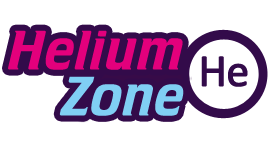
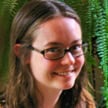
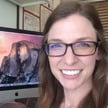
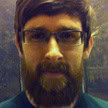
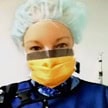
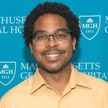
My Comments
What types of homemade pizza do you like and (1 comments)
Can kisses spread diseases?????? (1 comments)
Can spiders carry diseases that can be air born???? (1 comments)
Whats your favorite michael jackson song? (1 comments)
What is the most deadly virus? (1 comments)